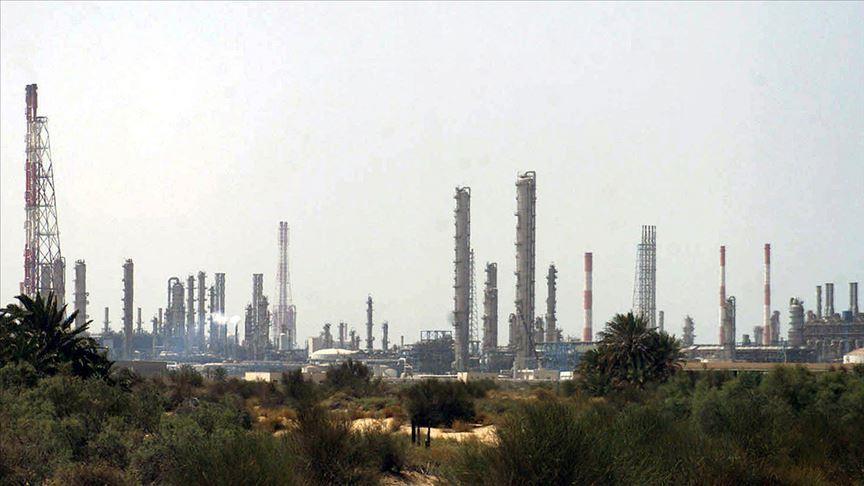Ministers from International Energy Agency (IEA) member countries agreed to release 60 million barrels of oil from storage, the IEA said in a statement on Tuesday.
The 31-member group, who convened for an extraordinary ministerial meeting chaired by US Secretary of Energy Jennifer Granholm, wanted 'to send a unified and strong message to global oil markets that there will be no shortfall in supplies as a result of Russia’s invasion of Ukraine.'
The IEA ministers expressed their concern about Russia's 'outrageous actions', and their support for sanctions imposed by the international community in response.
The ministers noted that Russia's invasion comes amid already-tight global oil markets, increased price volatility, the lowest commercial inventories since 2014, and the limited ability of producers to provide additional supply in the short term.
'The situation in energy markets is very serious and demands our full attention. Global energy security is under threat, putting the world economy at risk during a fragile stage of the recovery,' said IEA Executive Director Fatih Birol.
'I am grateful that IEA member countries made available the initial 60 million barrels to provide stability to oil markets,' Birol added.
He also expressed his satisfaction that member countries pledged to do everything at their disposal to assist Ukraine with fuel supplies.
Ukrainian Energy Minister German Galushchenko will attend as a special guest at the IEA’s ministerial meeting later this month, Birol confirmed.
-Energy supply should not be used as means of political coercion
The announcement of an initial release of 60 million barrels, or 4% of IEA members' emergency stockpiles of 1.5 billion barrels, is equivalent to 2 million barrels a day for 30 days.
The coordinated drawdown is the fourth in the history of the IEA since its formation in 1974. Previous collective action was taken in 2011, 2005 and 1991.
Russia is the third-largest oil producer globally and the largest exporter worldwide, which plays a pivotal role in global energy markets.
It exports approximately 5 million barrels a day of crude oil, representing roughly 12% of global trade. The average of 2.85 million barrels a day of petroleum products it supplies represents around 15% of the global refined product trade.
Around 60% of Russia's oil exports go to Europe and another 20% to China.
With the proviso that energy supplies will not be used as a means of political coercion or as a threat to national and international security, the ministers vowed to continue to closely monitor global oil and gas markets and to provide recommendations to the IEA, not ruling out additional emergency oil stock draws if needed.
The meeting also addressed Europe's significant reliance on Russian natural gas, with a particular emphasis on the need to reduce this reliance by looking to other resources, including LNG, and to pursue a well-managed acceleration of clean energy transitions.
On Thursday, the IEA secretariat will release a 10-point plan on how European countries can reduce their reliance o.n Russian gas supplies by next winter.
By Sibel Morrow
Anadolu Agency
energy@aa.com.tr


